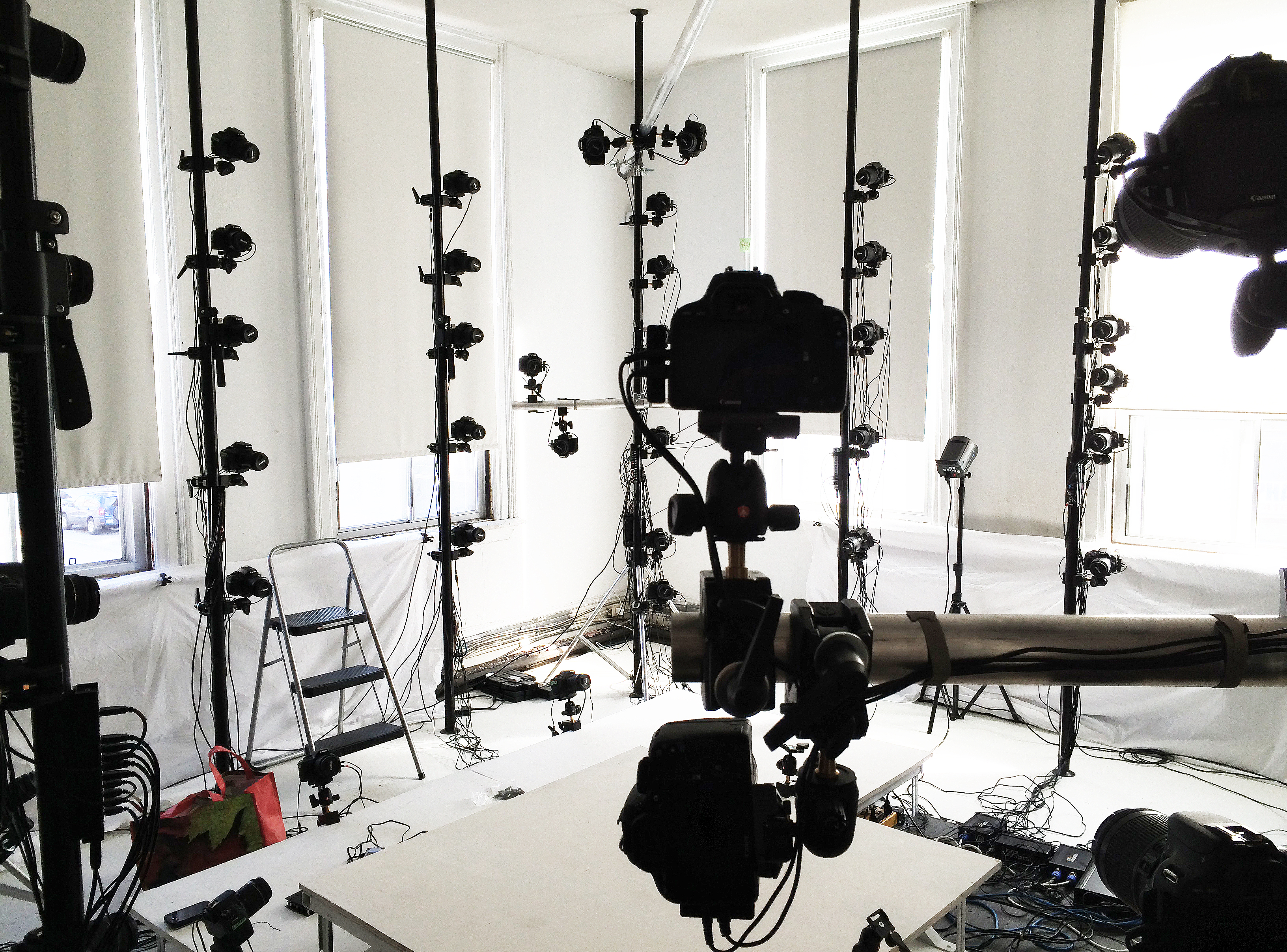Some people throw up.
Others get dizzy and stumble. Some just give up and yank the headset off in search of their bearings. It’s too much, too real.
Those knots that tangle up your stomach on when you ride an actual roller coaster at an actual amusement park, the falling in your chest and goofy grin on your face? They’re all present and accounted for – even though you sit stationary in an office chair, a blocky viewfinder strapped to your head, with headphones noise-cancelling everything but the clanging of wheels on slick metal and the blaring whir of a breeze that doesn’t exist.
There’s everything but the waft of funnel cake and the post-ride pitch to impulse-buy a photo with your hair in the wind.
You don’t vomit, but you’ve just experienced the same full-throttle rush you get from loop-de-looping on the Behemoth (or local equivalent) while sitting in a nondescript office on Queen Street West in Toronto.
Virtual reality is the business. And sooner than we think, it will change the way we watch, analyze and train for sports.
“It’s like a holodeck. If anyone’s ever seen Star Trek, it’s like that. You step into a new place and be wherever you want to be, do whatever you want to do,” explains Blair Renaud, a virtual reality (VR) developer and, during our trial, one of the men feeding us the blue pill.
In one “experience” Renaud and J. Lee Williams – a couple of creative tech whizzes and co-founders of Toronto-based Occupied VR you watch The Dark Knight Rises in a theatre on the moon. In another, you leap hundreds of feet into the air, and your body reflexively braces for impact.
Each is a wholly immersive adventure; a mildly scary voyage into vertigo, the fun kind. You sense how VR might become addictive. And even though your physical movements are minimal—such as slow head turns to check out your 360-degree surroundings—the experiment still taxes your eyes and brain. You need breaks, but with practise you get more comfortable in the make-believe realms.
“VR is like learning to walk again. You’re opening your eyes and you’re seeing the world and it’s different. It’s bright, it’s new. Your senses are registering that,” Williams explains. “There’s a new world we’re helping develop with people all over the world.”
The technology isn’t new but the explosion of investment, in terms of both dollars and time, is. Facebook’s $2 billion purchase last year of VR firm Oculus was seen by some as a tipping point, ushering in an uber-expensive technology to the consumer that the military has been using for years. (The highly anticipated and ground-breaking Oculus Rift headset is slated to hit stores in 2016 at an approximate cost of $1,500.) Now plenty of tech companies are jumping into the arena, with developers such as Occupied racing to create content for the platform.
Video games are a natural fit, and the Rift will be compatible with the Xbox One, but VR’s impact will also cause revolutions in film, advertising, television and sport.
“Take the World Cup—everybody wants to be there, not everyone can. Or the Olympics. You can sell seats with a 360-degree view. With stereoscopic cameras, you can get an immersive feeling where you feel like you’re at that event, front row,” Williams says. “There’s endless amounts of seats you can sell, and the sensation that you’re there is real. That’s only going to get better.”
Headcase, a Los Angeles-based VR company, is working with the Michigan Wolverines football team this fall to create virtual training and teaching tools. Why whiteboard a running route when you can “live” it?

Quantum Capture’s photogrammetry rig uses 96 cameras to capture a subject head-to-toe in extremely accurate detail. That model can then be brought to life through 3D animation.
Another sports-geared developer, StriVR Labs, has already linked with the NFL’s Cowboys, Cardinals, 49ers and Vikings. Now it’s making inroads with the NBA, NHL and WNBA, using its immersive coaching tools to help train teams like owner Ted Leonsis’s Washington Capitals and Washington Wizards.
“This is a tremendous opportunity for our players to view 3D video replays that will help them improve their on-the-court and on-the-ice decision-making skills,” Ted Leonsis wrote in August, after inking a multi-year partnership with the brand.
“Their primary focus was football, but we see definite applications and potential in basketball and hockey, and we are excited to be the first in the NBA, NHL and WNBA to apply this technology. And while it is a great teaching tool for our coaches and players, I also envision opportunities for our fans to engage with it as well.”
“Virtual reality is like learning to walk again. You’re opening your eyes and you’re seeing the world and it’s different, it’s bright, it’s new.”
Capitals defenceman John Carlson is on board.
“The potential competitive advantage that virtual reality training can give us is huge,” Carlson said in a release. “StriVR’s experience with football and quarterbacks is exciting for me, because I feel hockey defencemen and quarterbacks go through a similar decision-making process. The virtual reality technology is going to help me fine-tune my decision making in games and allow me to train as if I’m at practice without having to be on the ice.”
Practice on the sofa. Sit courtside from the comfort of your den. Perfect your golf swing. Experience R.A. Dickey’s knuckleball without actually stepping into the batter’s box… the developers have ideas. It’s just a matter of time before it’s available for your phone and your face.
“It a whole new world that we’re architecting,” Williams says. “The sky’s the limit.”










